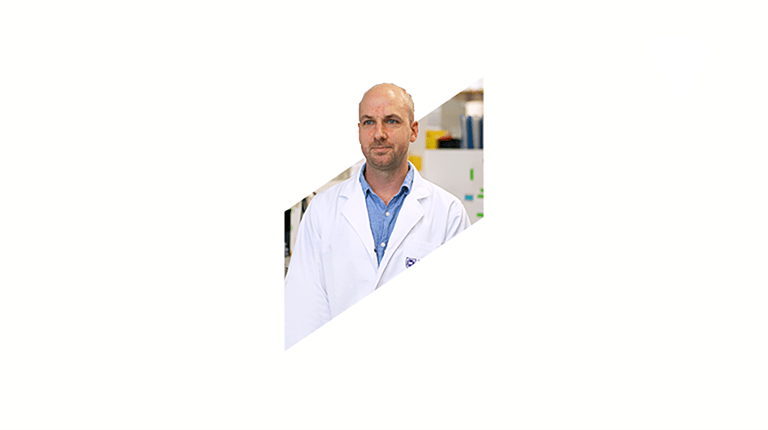Associate Professor Daniel Watterson - Biography
The University of Queensland
2022 CSL Centenary Fellow

Associate Professor Daniel Watterson, at The University of Queensland will use his $1.25 million CSL Centenary Fellowship to develop new ways of rapidly generating treatments to respond to future viral pandemics as they arise.
Viruses have always intrigued him. “They are the most basic form of life, and can help us understand how life works at a fundamental level. We can use that knowledge to develop new therapies and vaccines to save lives,” Daniel says.
Over the past decade Daniel has worked to understand and combat many viruses responsible for human suffering including Dengue, Zika, West Nile and influenza.
Vaccines have been central to the fight against viral diseases. But the challenge for many viral vaccines is to present the viral spike proteins in precisely the right shape to trigger our immune systems to develop a strong response.
Typically, when spike proteins are made without the rest of the virus, they lose their shape. Daniel is one of the three inventors of the molecular clamp, a technology that holds a virus spike protein in its original form so that an effective immune response can be generated.
He developed the technology working with Professor Paul Young and Associate Professor Keith Chappell at The University of Queensland.
“Through my work with the molecular clamp and COVID-19, I learnt is that vaccines aren’t enough. We also need the capability to develop new therapies to protect the health system and the wider community until vaccines become available,” Daniel says.
He believes the molecular clamp can enable rapid development of such anti-viral drugs. “We're taking a leaf out of how the human body responds to a new virus. It first creates antibodies that are broadly reactive and can actually prevent infection from a range of different viruses.”
“We'll be able to repurpose the molecular clamp to identify anti-viral antibodies, make them in the form equivalent to that found when the body responds to a completely novel viral threat, and deliver them to patients using mRNA” Daniel says.
“The $1.25 million CSL Centenary Fellowship gives me the freedom to step back and take a bigger picture look at how we can tackle viruses. I believe we will be able to develop new therapies against emerging viral pathogens before they're able to become anything like a pandemic.”


